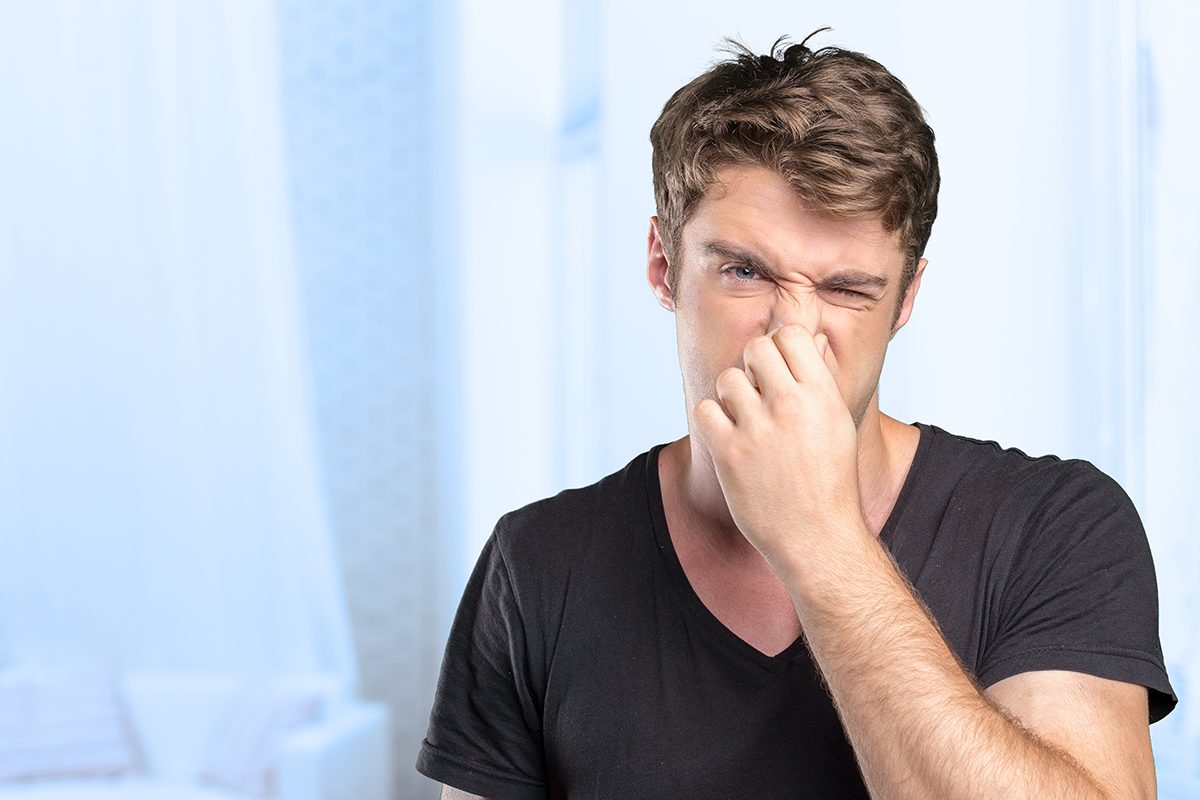 Bad body odor can stem from poor personal hygiene, diet, and even certain illnesses like liver and kidney disease. “Many people don’t consider sweat and body odor a medical condition,” says Dr. Adam Mamelak, board certified dermatologist in Austin Texas, “but it is definitely something that can interfere with people’s jobs, relationships and daily activities.” Many patients come to the dermatology clinic seeking ways to mask, decrease or even eliminate sweat and B.O. However, medical supervision should be sought if you experience a drastic, debilitating change in body odor – even after bathing.
Bad body odor can stem from poor personal hygiene, diet, and even certain illnesses like liver and kidney disease. “Many people don’t consider sweat and body odor a medical condition,” says Dr. Adam Mamelak, board certified dermatologist in Austin Texas, “but it is definitely something that can interfere with people’s jobs, relationships and daily activities.” Many patients come to the dermatology clinic seeking ways to mask, decrease or even eliminate sweat and B.O. However, medical supervision should be sought if you experience a drastic, debilitating change in body odor – even after bathing.
Where Have All The Flowers Gone?
Many people associate sweat with bad body odor. “Sweat is definitely a contributor, but isn’t necessarily the thing that gives you the bad smell,” says Dr. Miriam Hanson, board certified dermatologist at Sanova Dermatology. “Once you sweat, bacteria and germs metabolize and breakdown the sweat, releasing offending odors as byproducts.” These bacteria tend to colonize and live in dark, moist areas of our body like the groin and underarms, where germs are typically protected from oxygen and light. Bad odors can also stem from the feet as it is also an area that has sweat and moisture and tends to have limited exposure to oxygen and sunlight.
Go Like Stink
Most cases of bad body order can be rectified simply with effective cleaning. “The armpits can be washed twice a day with soap, water, and a mild mechanical exfoliator, like a face cloth or personal towel, that will help remove dead skin cells,” says Dr. Hanson. Every couple of days, an exfoliating cleanser can be used to refresh the skin. A cleanser that is formulated with a fruit acid like glycolic acid can be effective in removing sweat and dead skin cells.
“Hair removal helps with ingrowns and skin conditions like folliculitis and hidradenitis suprativa, but trimming body hair can help control odors as well,” says Dr. Hanson. Some organisms and fungus can grow on hair and invade hair shafts. Treating the hair does not provide a place for these germs to grow. Dr. Hanson does note sexually transmitted diseases can manifest in the groin and some of these diseases can also cause bad body odor.
A pumice stone can be used in addition to your cleanser and personal care products to remove excess dead skin cells form the feet. Applying a bit of talcum powder after bathing can help absorb excess moisture, drying up the environment where many of the bad odor germs thrive. Of course, shoes should be regularly cleaned to eliminate organisms that live there as well.
What is Bromhidrosis?
Bromhidrosis is bad body odor that is nuanced and may be difficult to treat. The eccrine and apocrine glands are located all over the body, with most of these glands being concentrated in the armpits. They secrete natural oils composed of fatty acids, ammonia and water that will cause an odor once the bacteria start to break them down.
You can help prevent bromhidrosis by cleaning the area on a regular basis and using a topical agent that will help mask odors and reduce sweat. “I often approach this type of body odor from a couple angles,” says Dr. Mamelak. “Antimicrobial and antiseptic agents can kill the germs that contribute to bad body odor, while deodorants and perfume can mask it.” If you notice that you are still suffering from bad body odor after applying a fragrant deodorant, then use unscented products. Some bacteria interact with the perfumes in products, increasing the production of the bad smell.
Decreasing or eliminating sweat is also effective approach in that there is nothing for germs to breakdown and hence, no offensive or funky byproducts. “Antiperspirants are the traditional way to decrease sweating,” explains Dr. Mamelak, “but newer approaches like Botox and miraDry are much more effective.”
Contact Us
Struggling with ways to pass the smell test? To learn more about how a dermatologist can help with your problem, please contact us today.
Join Us
